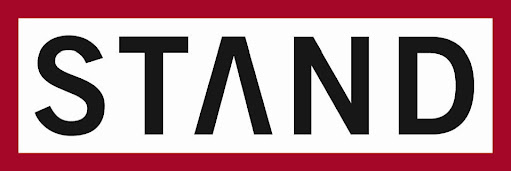You've probably experienced this yourself, maybe volunteering at a Stand booth or discussing at family dinner or chatting when out with some friends. You begin to talk about Stand, but find yourself losing your audience. You know Stand and its advocacy is important, but you can't seem to articulate it.
Here are some of my ideas to make that conversation easy:
I want do help, what does Stand do?
We make it easy to act against genocide.
What do I mean "making it easy"? Genocide is a massive issue that most people find overwhelming. Most people care about genocide and want to do something but they don’t know how to do so effectively. We create simple and effective ways for people to take action against genocide.
What do I mean "making it easy"? Genocide is a massive issue that most people find overwhelming. Most people care about genocide and want to do something but they don’t know how to do so effectively. We create simple and effective ways for people to take action against genocide.
What kinds of "simple and effective" things do you actually do?
How do these tools you create actually have an impact?
Picture the desk of a Canadian politician. There is a stack of "issues" she needs to address. Each time she receives a call (through 1800GENOCIDE) about Darfur, it moves Darfur a little bit up the stack. 10 calls move Darfur up the list higher. 100 calls really raises her eyebrows. 1000 calls makes Darfur impossible to ignore. Through our Stand for the Dead campaign we want to send 10,000 calls to Ottawa.
As a US Senator once said: “If every member of the House and Senate had received 100 letters from people back home saying we have to do something about Rwanda when the crisis was first developing, then I think the response would have been different.”
We make writing those letters easy.
 But what happens when Darfur ends up on the top of the stack of issues? What does Canada actually do?
But what happens when Darfur ends up on the top of the stack of issues? What does Canada actually do?

 The Canadian government has the international power and influence to lead the fight against genocide. It has proven that when it makes an issue like Land Mines its top foreign policy priority, the country can change the world for millions of people.
The Canadian government has the international power and influence to lead the fight against genocide. It has proven that when it makes an issue like Land Mines its top foreign policy priority, the country can change the world for millions of people.The Ottawa Process led by Canada was an impressive undertaking: in than one short year in the late 1990s over 100 countries has signed a treaty that banned landmines outright, led my small and medium-sized countries, outside the UN system, unimpeded by Superpower resistance (See http://www.icbl.org/tools/faq/treaty/significant). As of 2007, at least 38 nations have stopped production, and global trade has almost halted completely.
We are aiming for the day when Canada's top foreign policy priority is ending genocide. We want ending genocide to be Canada's next Land Mines.
If this is up to the government, what do I have to do with it?
Public pressure changes government priorities. Consider the issue of the Environment. In 2006, North American governments did nothing about the Environment. In 2008, every government had a "green plan" because a groundswell of citizens demanded it. After people like Al Gore helped transformed the latent energy in millions into a loud voice on the environment, governments began to listen.
Help us tell the government: we want to live in a world free of genocide.
Help us tell the government: we want to live in a world free of genocide.
Why should I support Stand and not a humanitarian organization?
Humanitarian aid is critical but not enough. Bags of rice alleviate suffering; they don't end genocide. When you support Stand’s advocacy you help achieve two important humanitarian outcomes:
First, you multiply your dollars for humanitarian aid. You could raise $100,000 for a single program in Darfur or directly advocate for $1,000,000 our (government) dollars sent to the right programs impacting Darfur.
Second, we can reduce the need for humanitarian aid by preventing genocide.
First, you multiply your dollars for humanitarian aid. You could raise $100,000 for a single program in Darfur or directly advocate for $1,000,000 our (government) dollars sent to the right programs impacting Darfur.
Second, we can reduce the need for humanitarian aid by preventing genocide.
I think all we need to do is educate people about Darfur, or raise more awareness.
You educate people so that they will be compelled to act against genocide. One million "educated" people make no impact on Darfur unless they take action. Join us so that we can show the "educated" easy ways to get into action.
Any questions you seem to get stumped with? Any questions seem to veer you off course? Send them to me, post them here, and I am happy to offer my 2 cents. Or if you have good answers to share, please do!
.jpg)




1 comment:
Ben,
Thanks a lot for this. I think this is exactly the sort of thing our members need when recruiting or tabling at their university/college/ high-school.
One other question that I think is important to answer is "What are Stand's goals?"
I think a nice, succinct answer could be:
"When genocide happens, we want to motivate the Canadian government to lead the world in stopping it. This starts with Darfur"
- Yoni
Post a Comment